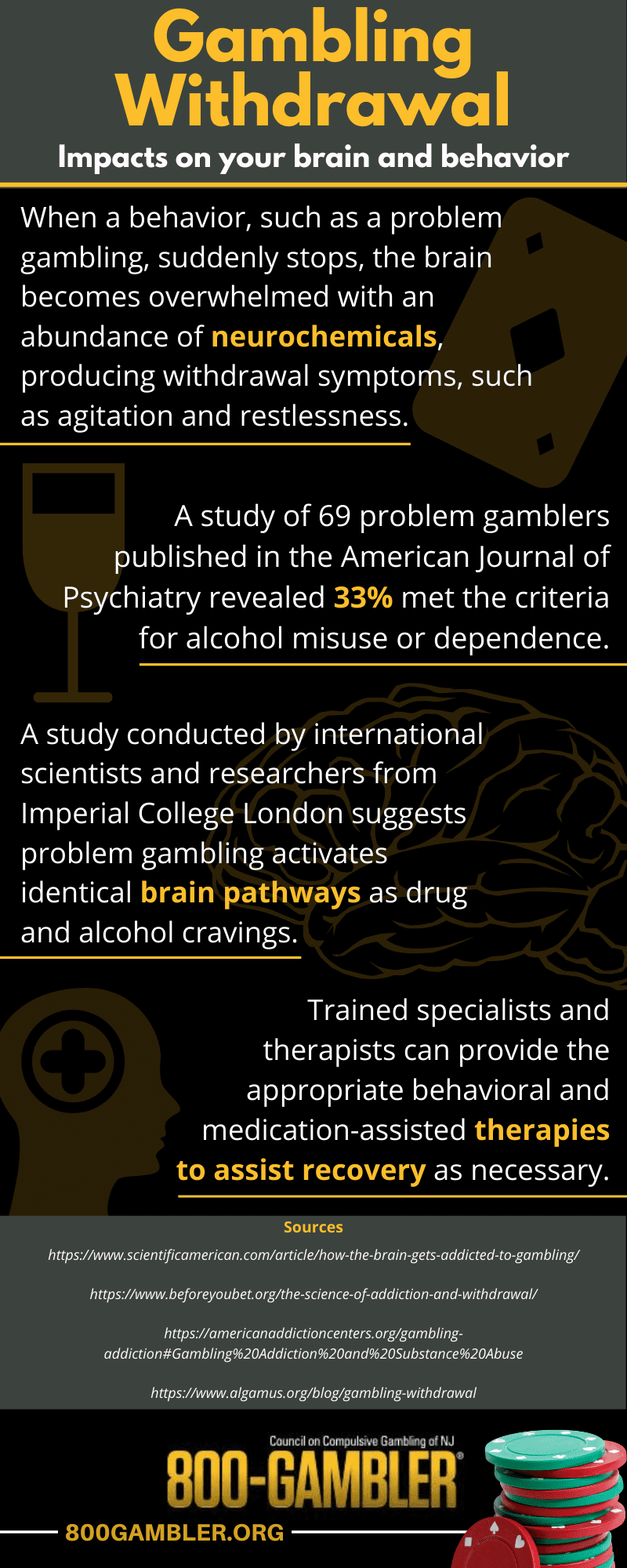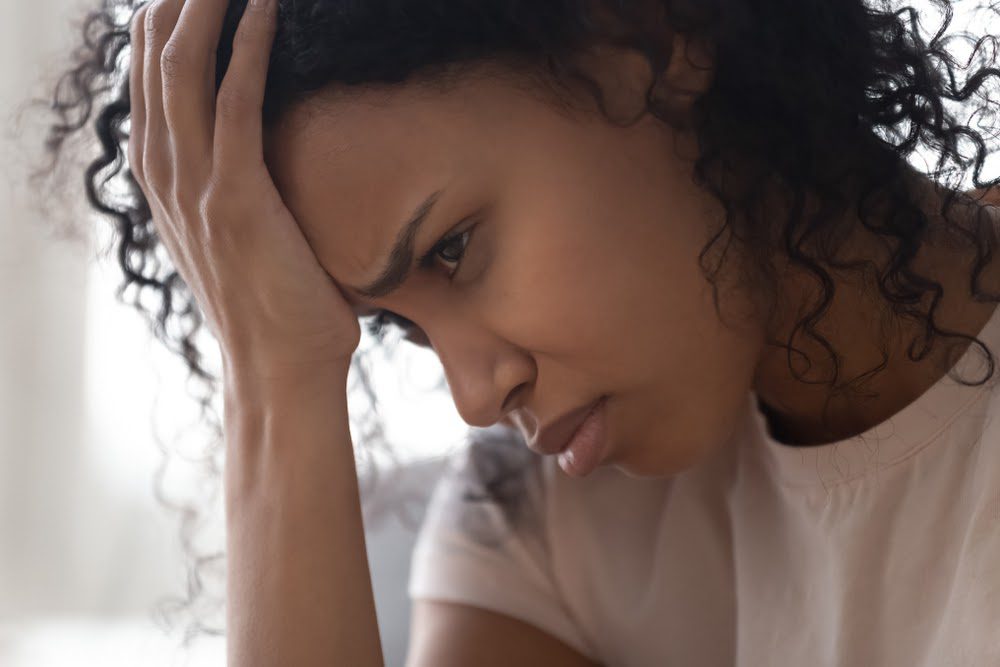We typically associate physical and mental withdrawal symptoms with disordered substance use. In these instances, your body becomes accustomed to the presence of a particular chemical, adapts to it, and eventually depends on it. At this point, you need the substance to feel normal, and when you try to go cold turkey or even cut back, your system senses an imbalance — an often unpleasant onslaught that drives many back to the substance in question.
Similarities Between Substance and Gambling Withdrawal
While not all substance use disorders bring about the same exact withdrawal symptoms, some commonalities exist. Withdrawal can present various undesirable symptoms for many, including headaches, tremors, and nausea. Withdrawal from substances can also lead to behavioral or mental impacts ranging from irritability to depression.
However, running this gauntlet isn’t always the result of stopping the disordered use of alcohol or another substance — changing problem behaviors can also have withdrawal symptoms.
While some people believe that quitting gambling cold turkey isn’t as harrowing as a drug addiction, similar withdrawal symptoms can present themselves in compulsive gamblers. Quitting anything cold turkey requires fighting the chemical reactions in your brain as your body tries to adjust to the newfound chemical imbalances.
Gambling on My Mind
Addiction to drugs and alcohol is only partially physical, as there are additional factors that affect the brain. Using involves habit and ritual — people tend to use and do things in a particular fashion. Each time these behaviors are repeated, an itch is scratched. Your brain releases dopamine in anticipation that craving will soon be satisfied — a mechanism not unlike the one problem gambling behaviors bring to the surface upon quitting.

The same can be said for compulsive gamblers. Dopamine gets released every time they make a bet and hit, so they remain in the constant cycle of trying to get those chemicals with each bet. Studies have shown that compulsive gamblers and drug users share a genetic predisposition towards impulsivity and seeking rewards. So while some people may think you can simply “stop gambling” any time you want, that is rarely the case.
Pursuing Dopamine at Any Cost
In the mind of a problem gambler, the act of gambling becomes something that is all-encompassing. It dominates their thoughts and actions where their day revolves around finding the time to place a bet. They focus on the possibility of getting the reward at the end of the bet and not on the serious financial, emotional, and interpersonal repercussions their actions might have.
Signs and Symptoms of Gambling Withdrawal
Whether you attempt to quit your compulsive gambling problem cold turkey or with professional help, there are significant chances that you will encounter some form of withdrawal symptoms. While these symptoms can vary wildly from person to person, there are some common ones that you can look out for so you can identify them and seek the help you need. You can potentially see the correlation between problem gambling and depression in Atlantic City.
Emotional gambling symptoms can include depression (which may bring about feelings of loneliness, irregular sleep patterns, or loss of interest in daily activities), anxiety, and insomnia. These symptoms can have physical effects on the body, including muscle soreness, chest tightening to heart palpitations, and difficulty breathing. As you continue to go through gambling withdrawal, these symptoms can intensify over time.
However, the intensity of any symptoms depends on the individual — how much stress they are under, financial standing, family history, general health, and much more. Regardless, those battling gambling withdrawal symptoms are at a crossroads with their recovery and could be unsure how to proceed. Having trusted family members and friends at your side can help you get through the worst of the symptoms and come out the other side.
What Can You Do About Gambling Withdrawal Symptoms?
The good news is that symptoms will eventually go away on their own. While they may be intense, almost too much to bear at points, they will not lead to death. You can use various coping mechanisms, including exercise, diving into a productive hobby, and spending time with an encouraging support system. However, seeking treatment for problem gambling, like those who have struggled with disordered substance use, sought help from treatment centers and support groups, is advisable for profound, long-lasting change.
New Jersey residents seeking more information about recovery from problem sports gambling in Atlantic City and for additional resources can contact our confidential helpline today at 800-GAMBLER. Rest assured that support, treatment, and hope are just one call away.
Sources:
https://www.algamus.org/blog/gambling-withdrawal
https://www.algamus.org/blog/signs-and-symptoms-of-gambling-withdrawal



